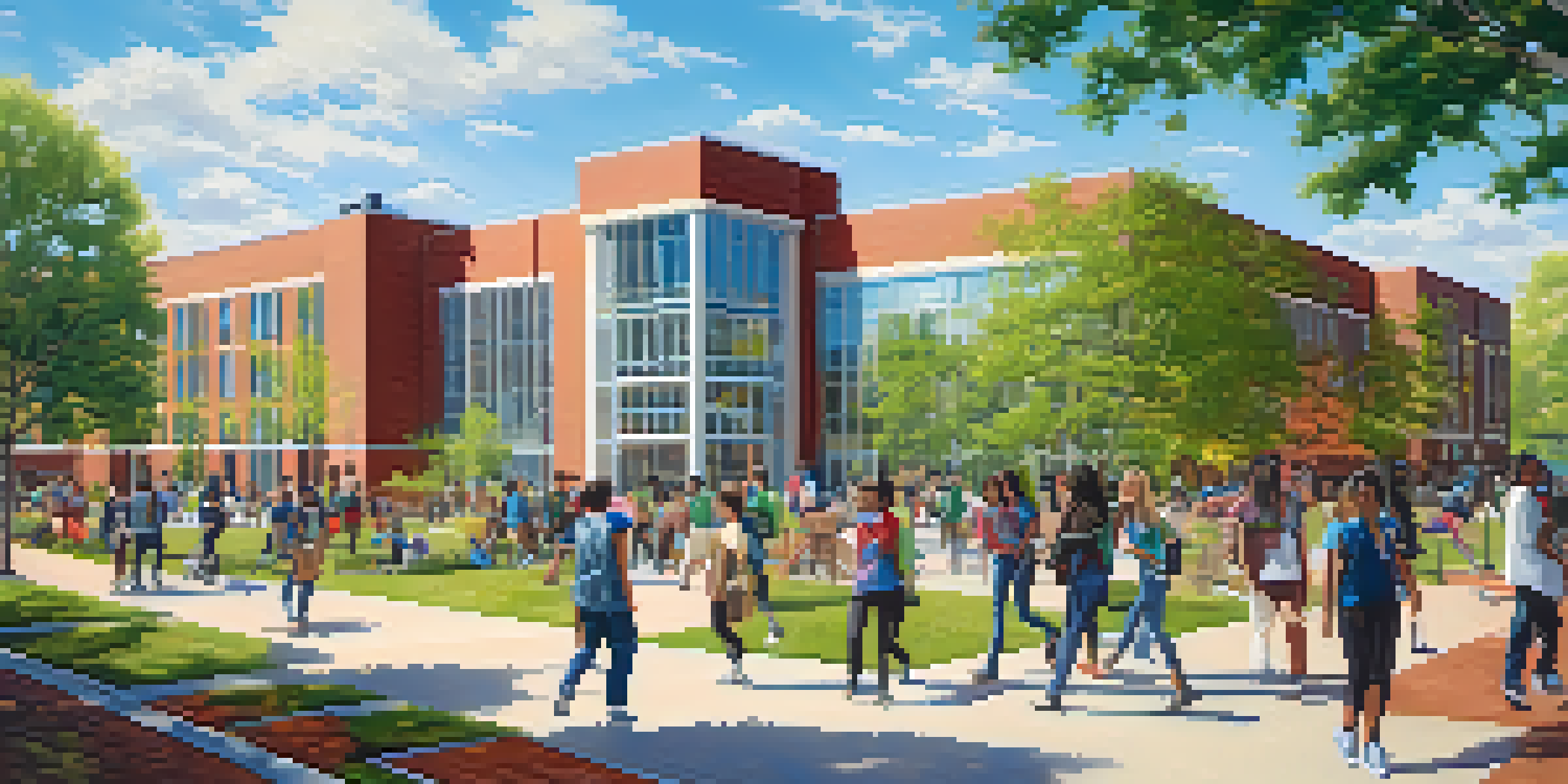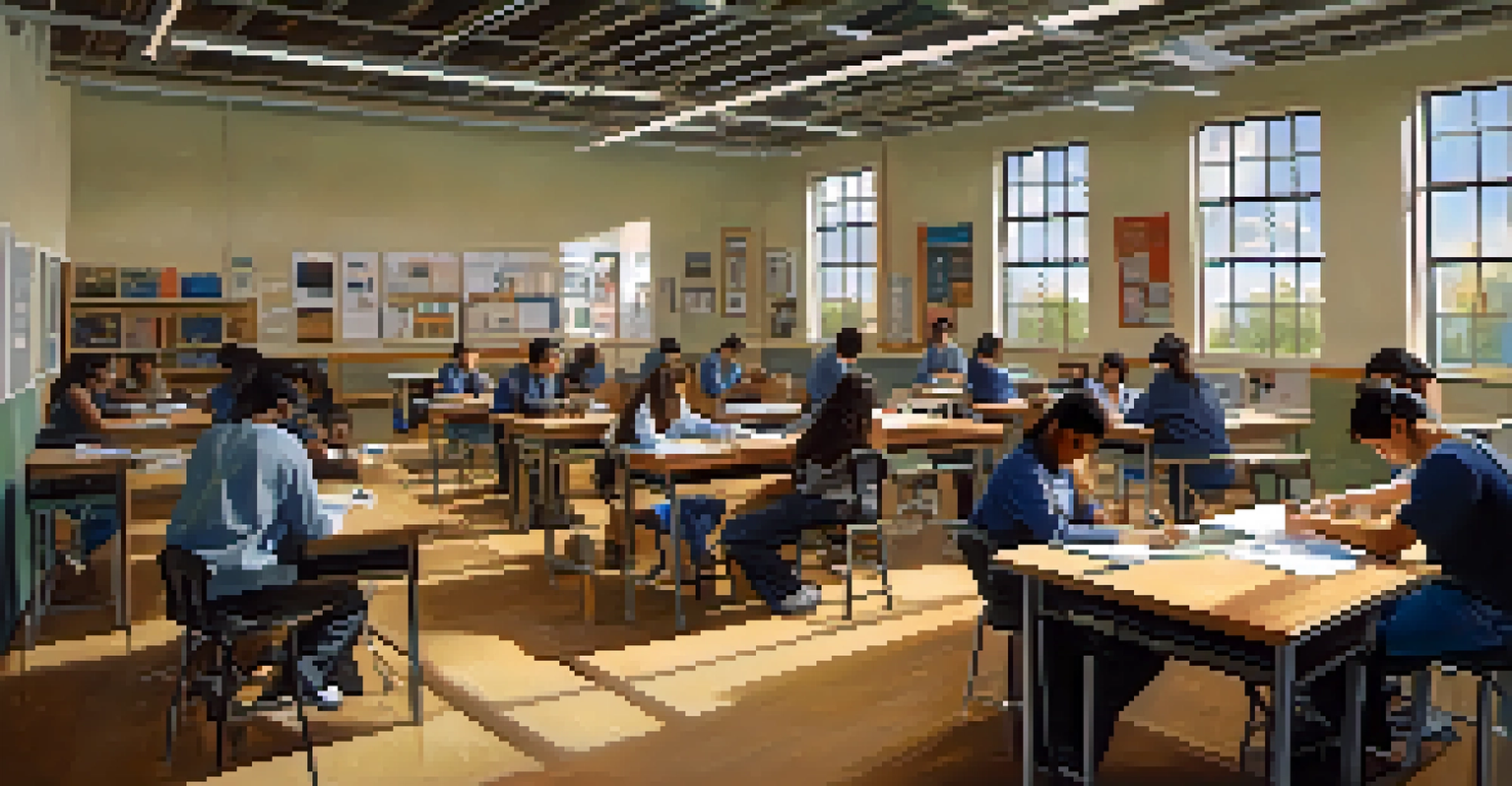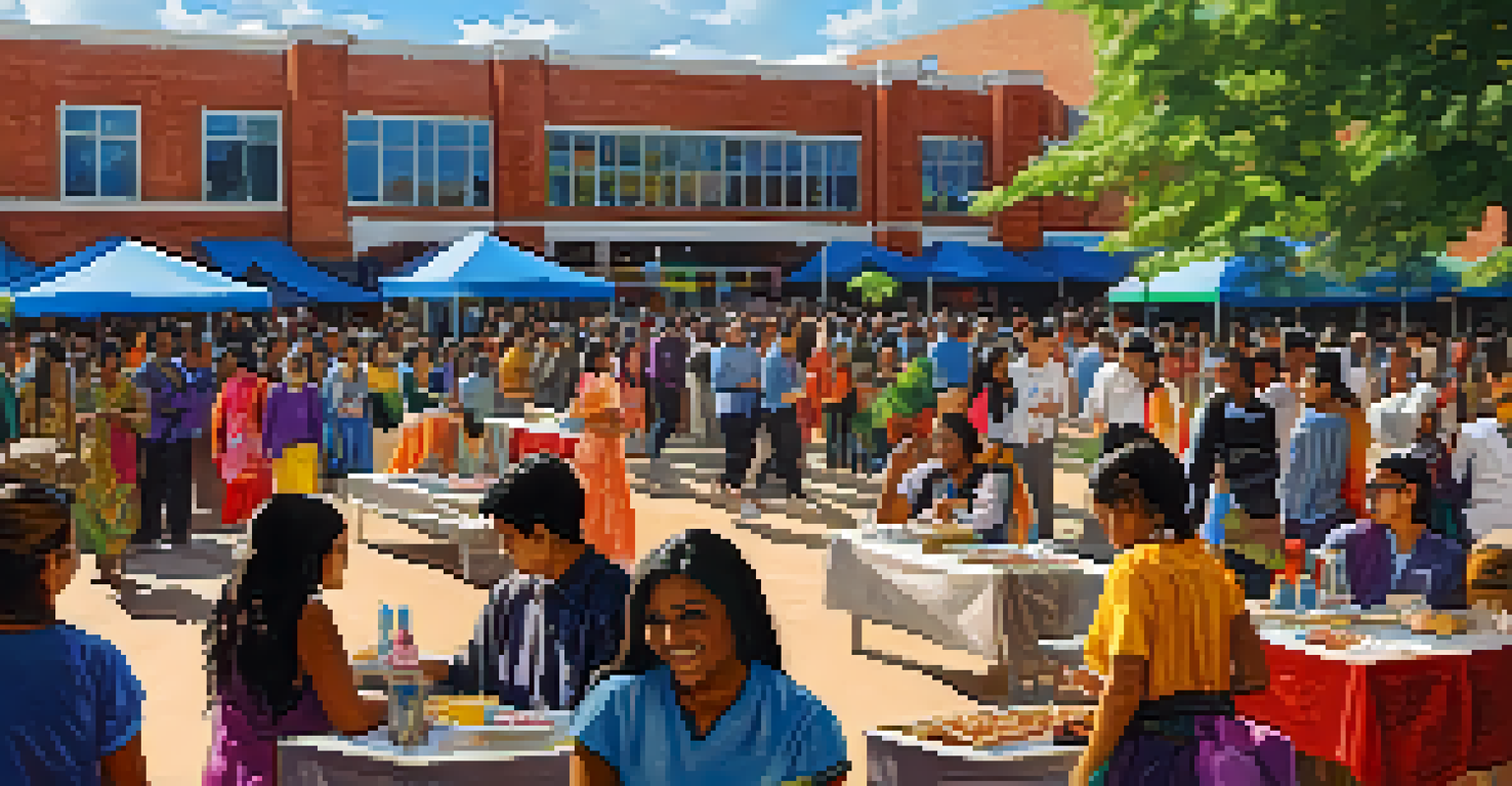The Role of Community Colleges in Minneapolis Education Sector

Understanding the Role of Community Colleges in Education
Community colleges play a crucial role in the educational landscape of Minneapolis. They serve as accessible gateways for students seeking higher education without the financial burden of four-year universities. By offering a range of programs, they cater to diverse needs and backgrounds, making education more inclusive.
Education is the most powerful weapon which you can use to change the world.
In Minneapolis, these institutions provide not only traditional degree programs but also vocational training and professional development courses. This flexibility allows students to tailor their education to fit their career goals and personal circumstances. Many students start here and later transfer to four-year colleges, easing their transition into higher education.
Moreover, community colleges often focus on community engagement and local workforce needs. By aligning their programs with the demands of local industries, they help create a skilled workforce that benefits both students and employers. This symbiotic relationship strengthens the overall economy of Minneapolis.
Accessibility and Affordability: Key Benefits
Accessibility and affordability are at the forefront of community college missions. Tuition rates are generally lower than those of four-year institutions, making it easier for students from all economic backgrounds to pursue their education. This financial relief can significantly reduce student debt burdens, which is a growing concern in today's economy.

Community colleges often offer flexible scheduling options, including evening and weekend classes, which accommodate working students or those with family responsibilities. This adaptability allows more individuals to pursue higher education while balancing other commitments, thus broadening access to learning opportunities.
Community Colleges Enhance Accessibility
Community colleges provide affordable education options and flexible scheduling, making higher education attainable for students from diverse backgrounds.
Additionally, many community colleges provide financial aid resources and support services to help students navigate the financial landscape. From scholarships to work-study programs, these resources are designed to ensure that financial barriers do not prevent capable students from achieving their educational goals.
Diversity and Inclusion in Community Colleges
Minneapolis community colleges are known for their diverse student populations, reflecting the rich tapestry of the city itself. These institutions are committed to creating inclusive environments where students from various backgrounds can thrive. This diversity enhances the learning experience, fostering a culture of collaboration and mutual respect.
The beautiful thing about learning is that no one can take it away from you.
Programs aimed at supporting underrepresented groups are common in community colleges. Initiatives like mentorship programs, cultural events, and resource centers help students from different backgrounds feel welcomed and valued. Such efforts not only empower individuals but also enrich the entire college community.
Furthermore, the diverse offerings at community colleges include programs that focus on cultural competency and social justice. By addressing these important topics, they prepare students to navigate and contribute positively to an increasingly globalized world, equipping them with the tools needed for success in diverse workplaces.
Career Readiness and Workforce Development
Community colleges in Minneapolis are heavily focused on career readiness and workforce development. They partner with local businesses and industries to ensure their programs align with current job market demands. This collaboration helps create a pipeline of skilled workers ready to fill essential roles in the community.
Vocational training programs, apprenticeships, and internships are often integral parts of the curriculum. These hands-on experiences not only enhance students' skills but also provide valuable networking opportunities, making it easier for graduates to secure employment after completing their studies. The real-world experience gained in these programs is invaluable.
Focus on Career Readiness
These institutions align their programs with local workforce needs, offering vocational training and hands-on experiences that prepare students for in-demand careers.
By offering courses in high-demand fields such as healthcare, technology, and trades, community colleges equip students with relevant skills that are sought after by employers. This focus on practical training ensures that graduates are not just educated, but also job-ready, addressing both individual and community needs.
The Importance of Transfer Programs
Transfer programs are a significant feature of Minneapolis community colleges, allowing students to transition smoothly to four-year institutions. This pathway is particularly beneficial for those who may not have initially enrolled in a university due to financial or academic concerns. By starting at a community college, students can build a strong academic foundation.
These programs often include partnerships with local universities, creating clear guidelines for credit transfers. This means that students can take courses at community colleges that will count towards their bachelor’s degrees, saving both time and money. This collaborative approach enhances student success rates and encourages lifelong education.
Moreover, students who start at community colleges can benefit from smaller class sizes and more personalized attention from instructors. This supportive environment can boost confidence and academic performance, paving the way for a successful transition to a four-year college where students may face larger class sizes and more competition.
Community Engagement and Support Services
Community colleges in Minneapolis are deeply rooted in their communities, often serving as hubs for local engagement. They host events, workshops, and services that not only benefit students but also the broader community. By fostering strong ties with local organizations, these institutions contribute to the social and economic vitality of the city.
Support services such as counseling, tutoring, and career guidance are essential components of community colleges. These resources help students navigate academic challenges and prepare for their future careers. Accessibility to such services is crucial, as it ensures that all students have the necessary support to succeed.
Support for Transfer to Universities
Transfer programs at community colleges create pathways for students to smoothly transition to four-year institutions, ensuring they save time and money while receiving personalized support.
Additionally, community colleges often offer programs geared towards lifelong learning, encouraging community members to continue their education regardless of age. Whether it's through non-credit courses, personal enrichment classes, or professional development opportunities, these offerings keep the spirit of learning alive in the community.
Future Trends and Innovations in Community Colleges
Looking ahead, community colleges in Minneapolis are adapting to the evolving educational landscape. The integration of technology into learning environments is becoming increasingly important. Online courses and hybrid models are allowing for greater flexibility, catering to students who may prefer or require remote learning options.
Innovations in curriculum design are also emerging, with a focus on interdisciplinary studies and experiential learning. By blending various fields of study, community colleges are preparing students for the complexities of the modern workforce. This dynamic approach ensures that graduates are well-rounded and adaptable in their careers.

As community colleges continue to evolve, they will likely play an even more significant role in addressing the challenges of workforce shortages and economic disparities. By remaining responsive to community needs and embracing new educational technologies, they can ensure that they remain vital contributors to Minneapolis's educational ecosystem.